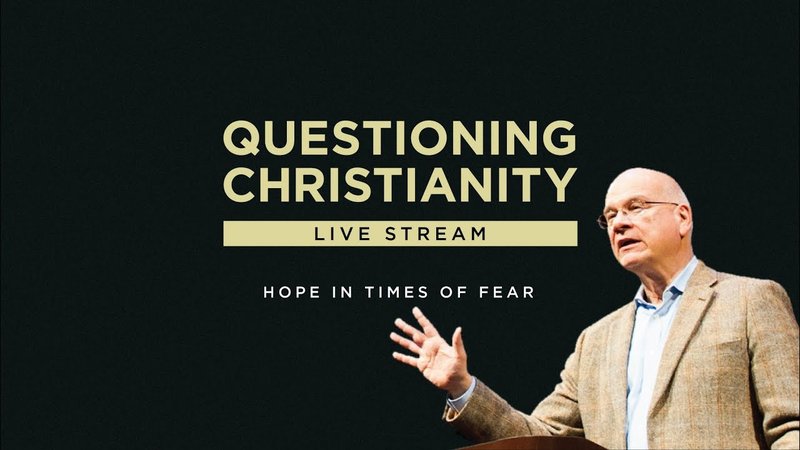· Apologetics & Evangelism · 7 min read
Ultimate Guide to Christian Apologetics: Defending Your Faith with Logic and Evidence
Discover essential Christian apologetics books for beginners, logical arguments for God's existence, and how to respond to common atheist objections in this insightful article. Engage in respectful religious debates armed with evidence for the resurrection of Jesus.

Ultimate Guide to Christian Apologetics: Defending Your Faith with Logic and Evidence
Christian apologetics is a field of study that seeks to provide a rational basis for the truth claims of Christianity. It involves presenting logical arguments, historical evidence, and philosophical reasoning to defend the existence of God, the reliability of the Bible, the deity of Jesus Christ, and other fundamental beliefs of the Christian faith. In this ultimate guide to Christian apologetics, we will explore key topics such as logical arguments for the existence of God, responding to common atheist objections, evidence for the resurrection of Jesus, engaging in respectful religious debates, and recommended books for beginners.
1. What are some logical arguments for the existence of God?
Logical arguments for the existence of God provide a rational basis for belief in a higher power. One such argument is the cosmological argument, which states that everything in the universe has a cause and that there must be an uncaused first cause or prime mover that started it all. Another argument is the teleological argument, which suggests that the complexity and order found in nature imply the existence of an intelligent designer. The moral argument posits that objective moral values and duties require a moral lawgiver, which can be identified as God.
According to Peter Kreeft and Ronald Tacelli in their book “Handbook of Christian Apologetics,” these arguments provide strong philosophical foundations for belief in God. They explain how these logical arguments can help us understand and articulate our faith in a way that is intellectually satisfying.
2. How can we respond to common atheist objections?
When engaging in discussions with atheists or skeptics, it is important to respond to their objections with respect and humility. One common objection raised by atheists is the problem of evil, which questions how an all-powerful and loving God can allow suffering and evil in the world. In response to this objection, it is crucial to emphasize that evil is not evidence against the existence of God but rather a consequence of human free will.
Another common objection is the lack of empirical evidence for God’s existence. However, it is important to note that God’s existence cannot be proven through scientific methods alone. Instead, we can provide philosophical arguments and historical evidence to support our belief in God.
In his book “On Guard: Defending Your Faith with Reason and Precision,” William Lane Craig presents logical and evidential responses to common atheist objections. He emphasizes the importance of engaging in respectful dialogue and being prepared to provide thoughtful and well-reasoned answers to skeptical challenges.
3. What is the evidence for the resurrection of Jesus?
The resurrection of Jesus is a foundational belief of Christianity. It is supported by historical evidence, eyewitness testimonies, and the transformation of the early disciples. The New Testament accounts provide detailed descriptions of Jesus’ crucifixion, burial, and subsequent appearances to his disciples.
In his book “The Case for Christ,” Lee Strobel examines the historical evidence for the resurrection. He interviews scholars and experts in various fields, including archaeology, ancient manuscripts, and medical science, to build a compelling case for the resurrection of Jesus.
Additionally, the apostle Paul writes in 1 Corinthians 15:3-8 about the resurrection appearances of Jesus to various individuals and groups. These accounts provide strong evidence for the reality of Jesus’ resurrection and its significance for the Christian faith.
4. How can we engage in respectful religious debates?
Engaging in respectful religious debates requires a combination of knowledge, humility, and an understanding of effective communication strategies. It is important to listen actively, seek common ground, and avoid personal attacks or disrespectful language.
In his book “Everyday Apologetics: Answering Common Objections to the Christian Faith,” Paul Chamberlain emphasizes the importance of engaging in respectful dialogue. He provides practical tips for navigating conversations about faith, including asking questions to understand the other person’s perspective and using clear and concise language to articulate your own beliefs.
Furthermore, it is essential to approach debates with a spirit of humility and openness to learning. Recognize that you may not have all the answers and be willing to admit when you don’t know something. This will foster a more constructive and respectful dialogue.
5. What are some recommended Christian apologetics books for beginners?
For beginners interested in Christian apologetics, there are several highly recommended books that provide a solid foundation in defending the faith. “Handbook of Christian Apologetics” by Peter Kreeft and Ronald Tacelli is a comprehensive guide that covers a wide range of topics, making it an excellent starting point.
Another recommended book is “On Guard: Defending Your Faith with Reason and Precision” by William Lane Craig. This book offers illustrations, sidebars, and memorizable steps to help beginners defend their faith with reason and precision.
For those looking for a more personal narrative approach, “More Than a Carpenter” by Sean and Josh McDowell is a concise book that presents a brief case for the resurrection, deity of Jesus, and the reliability of the New Testament through the lens of Josh’s powerful story.
Ultimately, choosing a book depends on one’s personal preferences and areas of interest within Christian apologetics. It is important to read widely and critically evaluate the arguments presented in these books to strengthen one’s understanding of the Christian faith.
6. How can Christian apologetics help strengthen our faith?
Christian apologetics plays a vital role in strengthening our faith by providing rational arguments and evidence that support our beliefs. It equips us with the tools to articulate our faith more effectively, engage in meaningful conversations with skeptics, and respond to challenging questions.
By exploring logical arguments for the existence of God, responding to objections, and examining evidence for key Christian doctrines, we can develop a deeper understanding of our faith. This increased knowledge and confidence can help us navigate doubts, reinforce our convictions, and provide a solid foundation for our beliefs.
Christian apologetics also encourages critical thinking and intellectual engagement with our faith. It promotes a holistic approach to Christianity that embraces both reason and faith, allowing us to grow intellectually and spiritually.
7. What are some potential weaknesses of Christian apologetics?
While Christian apologetics provides a valuable framework for defending the faith, it is important to recognize its limitations and potential weaknesses. One potential weakness is the tendency to rely solely on intellectual arguments and evidence, neglecting the role of personal experience and spiritual transformation in faith formation.
Additionally, Christian apologetics may not always provide definitive answers to every question or objection raised. It is essential to acknowledge the mystery and limitations of human understanding when engaging in apologetic discussions.
Another potential weakness is the risk of becoming overly argumentative or confrontational. Apologetics should be approached with a spirit of humility, seeking to build bridges rather than create divisions.
To address these weaknesses, it is important to supplement apologetic arguments with personal testimonies, spiritual formation practices, and an emphasis on the transformative power of the Gospel.
8. How can we apply Christian apologetics in our everyday lives?
Christian apologetics has practical applications that can be integrated into our everyday lives. Firstly, it helps us engage in meaningful conversations about faith with friends, family members, colleagues, and others who may have questions or doubts. By being prepared with logical arguments and evidence, we can provide thoughtful responses that may lead to deeper discussions.
Secondly, Christian apologetics can strengthen our own faith by addressing our own doubts and questions. By engaging with the intellectual aspects of our faith, we can gain a deeper understanding and appreciation for Christianity.
Lastly, Christian apologetics can serve as a tool for evangelism. By presenting rational and coherent arguments for the truth of Christianity, we can effectively communicate the Gospel to those who may be skeptical or searching for answers.
In conclusion, Christian apologetics provides a rational basis for the truth claims of Christianity. By exploring logical arguments, responding to objections, examining evidence for key doctrines, and engaging in respectful dialogue, we can strengthen our faith and effectively defend it with logic and evidence. Recommended books for beginners offer valuable insights into these topics. However, it is important to approach apologetics with humility, recognizing its limitations and being open to personal transformation. Ultimately, Christian apologetics equips us to engage intellectually and confidently with our faith in today’s world.



